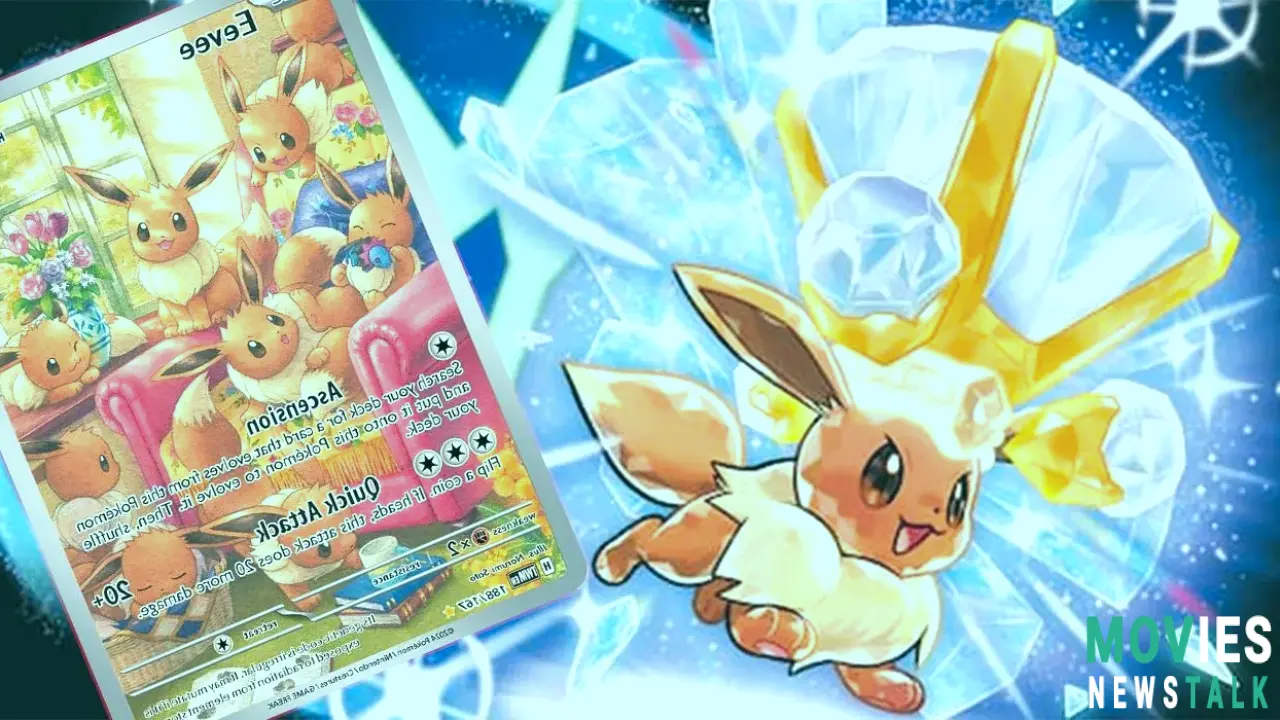Pokémon TCG: Are Special Sets Killing the Game?
Pokémon TCG's Special Set Problem: Is it Too Much of a Good Thing?
The Pokémon Trading Card Game (TCG) is hugely popular; those special sets add excitement. But are they harming the game? We're diving into this very question – this article features spoilers regarding upcoming sets. If you don't want to be spoiled about those potential upcoming cards and future sets – this article is for you!
Prismatic Evolution, launching in early 2025, is a perfect example. No individual booster packs are available here! Only gift sets and Elite Trainer Boxes are being sold, this forces those collectors who might already have limited income toward only purchasing a complete collection in bulk; forcing collectors toward paying extremely large amounts up front instead of spending incrementally. This model completely changes that entire landscape, potentially shutting out fans who already spend large amounts.
The Rise of Special Sets: A Flood of New Cards
Pokémon TCG had special sets since 2012; usually smaller (20-30 cards), with maybe one a year. Now? Two special sets annually! Some even top 207 cards! This kind of release model fundamentally changes what kind of collector and player the Pokémon company might appeal to and could cause issues down the line!
It’s changed a lot for collectors; completely altering what kind of engagement might appear – constantly releasing new products creates intense competition. Even getting access to new cards isn't as easy due to their release model being changed significantly from a single release into an unpredictable manner that significantly harmed their revenue potential!
Prismatic Evolution: Eevee, Evolutions, and Japanese Imports
PokéBeach revealed details on Prismatic Evolution: it will feature Tera ex versions of Eevee and its evolutions from the Japanese Terastal Festival set ("High Class Set"). That sounds really interesting; it features enhanced packs, guaranteed rare pulls, special “god packs” only containing rare and ultra-rare cards— this is impressive, very impressive but creates other problems that this article will delve into.
That initial, awesome impression turns sour, due to its distribution models impacting the price point for individual cards. It is only accessible through several prepackaged collections instead of selling individual booster packs, This distribution methodology is used globally! It completely mashes various Japanese sets. Sometimes that’s okay (Stellar Crown) – however they tend to completely overstuff things; producing tons of filler cards – harming that special quality that Japan specifically marketed this set as having! That completely affects what kind of quality might appear.
The Problems with Gift Sets: A Money Grab and Market Oversaturation
Prismatic Evolution, highlights that special sets have two main issues, folks! First: it totally bypasses Pokémon TCG's four-set-per-year cadence. Four is normally ideal. It gives a long timeframe to adjust to changes; plus allowing time to collect valuable cards – generating better pull rates over longer time frames that allows both fans and professional players the chance to keep track of all the new releases and to prepare against those changes. The change makes several serious changes to that initial model; changing from one release into several more – even potentially monthly – impacting various aspects involving the community! This change however significantly harmed the success, even causing those most interested and dedicated members of the fanbase some considerable negative impacts.
Too many sets create oversaturation, similar to Magic: The Gathering’s 2024 ten-set release! Even their popular Bloomburrow got immediately overshadowed due to marketing immediately shifting and diverting resources toward its next set – a repeated issue in many places and creates that disconnect many players felt regarding their experience, producing a huge disappointment from long-term engagement!
Secondly,these sets get sold only via expensive gift sets; which really is like a money grab, folks! You’re typically forced to spend at least $20 for packs. It’s a bad strategy. Those people who might only buy one or two packs of cards per release are effectively barred from participation in this otherwise popular card game – creating an extreme restriction which limits this card game’s ability to truly be accessible; severely hampering this otherwise fun activity from reaching a wide market and further isolating its potential consumer demographic, those young people playing it on limited incomes and budgets. Those older special sets were mostly old cards; no problem there. But new, competitive cards, especially ones likeFezandipiti ex(fromShrouded Fable, a tournament favorite), force purchases of expensive products.
How to Fix the Pokémon TCG's Special Set Issues
The good news? They can make this work. They don't want to completely abandon special sets – it's lucrative! These sets create other special chances to sell themed releases, and provide collectors with those rarer, potentially rarer valuable cards that increase profitability and allows the Pokémon Company to retain customers who might otherwise be completely dissatisfied! However, some adjustments will generate improved financial viability, without destroying that kind of connection needed for continued growth!
- Sell individual packs: Make those sets easily accessible. Those cards in the expensive packs need to have a release option outside those prepackaged and higher cost sales!
- Reduce set sizes: A 50-card set is way easier to complete than a 200-card one; particularly since purchases aren’t simply one pack. Smaller sets often have improved pull rates– and obtaining rarer cards; that sought-after cards become far more likely if set sizes are significantly decreased; particularly those more rare versions!
Conclusion: A Wake-Up Call for the Pokémon TCG!
Those special sets are now a significant issue. Previously they’re fun. Now? It creates financial barriers; preventing potential customer participation. The Pokémon Company needs to reduce these costly releases, generate more sensible models that create more revenue instead of less.
Without restraint? They risk the pathMagic: The Gatheringtook. High profits? Yeah, but low fan engagement? A truly disastrous outcome!

